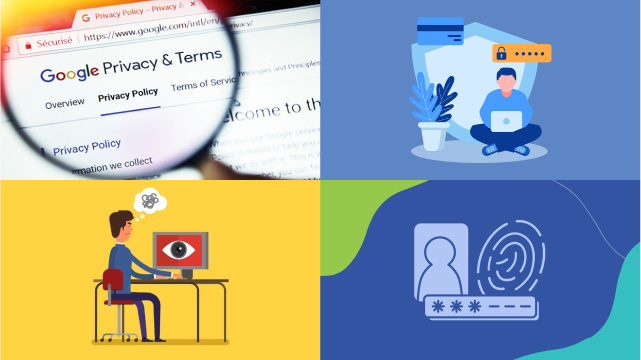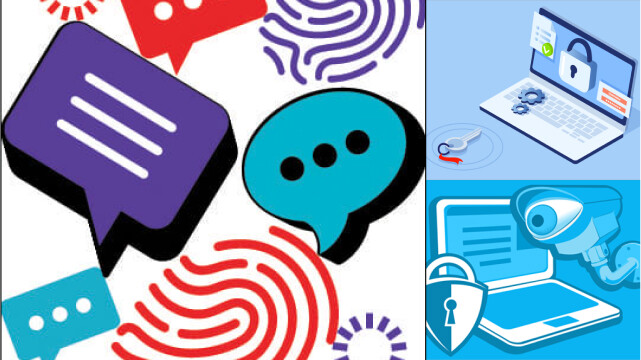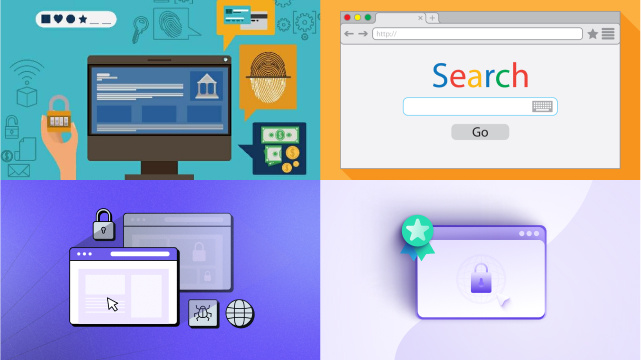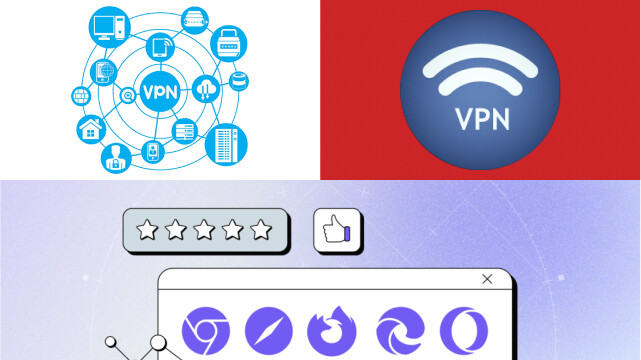Understand the Risks to Your Online Privacy
In today’s digital age, online privacy is a major concern. With the increase in cyber threats, it is important to understand the risks to your online privacy.
There are many ways in which your online privacy can be compromised, such as hacking, data breaches, phishing scams, and malware attacks.
- Hackers can gain access to your personal information, including your login credentials, financial data, and other sensitive information.
- Data breaches can expose your personal data to cybercriminals, who can use it for identity theft or fraud.
- Phishing scams can trick you into giving away your personal information by posing as a trustworthy entity.
- Malware attacks can install spyware on your device, allowing hackers to monitor your online activities and steal your personal data.
To protect your online privacy, it is important to understand these risks and take necessary precautions. Using a VPN, installing anti-virus software, avoiding suspicious links, and regularly updating your software are just a few steps you can take to protect your online privacy.
Use Strong Passwords and Two-Factor Authentication
In today’s digital age, protecting your online accounts with strong passwords and two-factor authentication is more important than ever.
- Weak passwords are one of the easiest ways for hackers to gain access to your personal information, and two-factor authentication adds an extra layer of security to ensure that only you can access your accounts.
- When creating passwords, it’s important to avoid using common words or phrases and to include a mix of uppercase and lowercase letters, numbers, and special characters.
- Avoid using the same password for multiple accounts and consider using a password manager to help generate and securely store complex passwords.
- Two-factor authentication adds an extra step to the login process, requiring you to enter a code generated by an app or sent via text message in addition to your password.
- This ensures that even if a hacker manages to obtain your password, they still won’t be able to access your account without the unique code.
By using strong passwords and two-factor authentication, you can significantly reduce the risk of hackers gaining access to your personal information and keep your online accounts safe and secure.
Keep Your Software and Devices Up-to-Date
Keeping your software and devices up-to-date is an essential step in protecting your online privacy. Many software updates are released to patch security vulnerabilities that could be exploited by cybercriminals to steal your data or install malware on your device.
- Keeping your operating system, web browser, and other software up-to-date can significantly reduce the risk of a successful cyber attack.
- In addition to software updates, keeping your devices up-to-date is also important. This includes updating the firmware on your router and other internet-connected devices.
- Many of these devices are vulnerable to attacks if not updated regularly, and cybercriminals often target them as an entry point into a network.
To ensure that your software and devices are up-to-date, enable automatic updates whenever possible. If automatic updates are not available, make it a habit to check for updates regularly and install them promptly.
Taking these simple steps can go a long way in protecting your online privacy and keeping your data safe from cyber threats.
Limit Your Personal Information Online
In today’s digital age, personal information is constantly being collected and shared online. However, this comes with significant risks to your online privacy and security.
Limiting the amount of personal information you share online can greatly reduce the likelihood of being a target of cybercrime.
- Avoid sharing personal details like your phone number or home address, and limit the visibility of your profile to only those you trust. Similarly, avoid sharing sensitive information such as your full name or date of birth on public forums or in online discussions.
- Be cautious of giving out personal information when signing up for online services or creating accounts. Avoid providing unnecessary details and consider using a disposable email address for online registrations.
- Finally, be mindful of what you click on and download online. Phishing scams and malware can steal personal information from your device. Keep your antivirus software up-to-date and be cautious of links or attachments from unknown sources.
By limiting your personal information online, you can better protect your online privacy and security.
Use Privacy-Focused Browsers and Search Engines
In today’s digital age, it’s important to be vigilant about the links you click on. Cybercriminals often use deceptive tactics to trick you into clicking on links that can compromise your online security and privacy.
This can include phishing emails, fake websites, and even malicious ads on legitimate websites.
To protect yourself, it’s important to be cautious and think twice before clicking on any links.
Look for tell-tale signs of a scam, such as poor grammar and spelling errors in the message, or suspicious URLs that don’t match the website you were expecting to visit.
It’s also a good idea to use anti-virus software that can detect and block malicious links before they can harm your device. Keep your software up-to-date to ensure that you have the latest security patches and features to protect you from online threats.
Remember, an ounce of prevention is worth a pound of cure. By being careful about what you click on, you can help safeguard your online privacy and security.
Be Careful What You Click On
The internet is full of potential threats to your online privacy and security. One of the most common ways that hackers and cybercriminals can gain access to your personal information is through malicious links or attachments in emails or on websites.
It’s important to always be cautious about what you click on and to verify the source of any links or attachments before opening them:
- One way to protect yourself is to hover over the link to see the full URL and ensure that it’s a legitimate website. Additionally, avoid clicking on links in unsolicited emails or messages, as they are often phishing attempts.
- It’s also important to keep your software and browsers up-to-date to ensure that you have the latest security patches and protections against known vulnerabilities.
By being vigilant and taking precautions when clicking on links, you can greatly reduce your risk of falling victim to online scams or having your personal information compromised.
Use a Virtual Private Network (VPN)
Using a Virtual Private Network (VPN) is an excellent way to protect your online privacy and security. A VPN creates a secure and encrypted connection between your device and the internet, making it difficult for anyone to intercept your data.
With a VPN:
- your online traffic is routed through a remote server, making it appear as if you are accessing the internet from a different location.
This not only helps to protect your online privacy, but it also allows you to access geo-restricted content and bypass internet censorship.
- When choosing a VPN, it’s important to consider factors such as encryption strength, logging policies, and server locations. Some VPN providers offer additional features such as ad-blocking, malware protection, and automatic kill-switches.
It’s also important to choose a reputable VPN provider with a strong track record of protecting user privacy.
Among the many options available, Planet VPN stands out as an excellent choice for achieving maximum privacy. With its strong encryption, a no-logs policy, and a global network of servers (1260+ best VPN servers and covers 60+ countries across 5 continents).
Planet VPN ensures your online activity remains secure and private. Additionally, its user-friendly features, such as built-in ad-blocking and malware protection, make it a reliable and comprehensive solution for safeguarding your online presence.
Stay Educated and Informed about Online Privacy Threats
- In today’s digital age, staying informed about online privacy threats is crucial. The internet is filled with various threats, including phishing scams, malware attacks, and data breaches. It’s essential to stay educated and aware of these threats to keep your online privacy intact.
- There are many ways to stay informed about online privacy threats. You can follow reliable sources such as tech blogs, cybersecurity websites, and even social media accounts that provide regular updates on online privacy threats and best practices.
- It’s also vital to educate yourself on the latest cybersecurity trends and best practices. This includes learning about password management, two-factor authentication, and encryption. By keeping up-to-date on the latest developments, you can better protect your online privacy.
In addition to staying informed, you can also take proactive measures to protect your online privacy, such as using a reputable VPN and being mindful of the information you share online. By staying educated and informed, you can safeguard your online privacy and protect yourself from potential threats.



